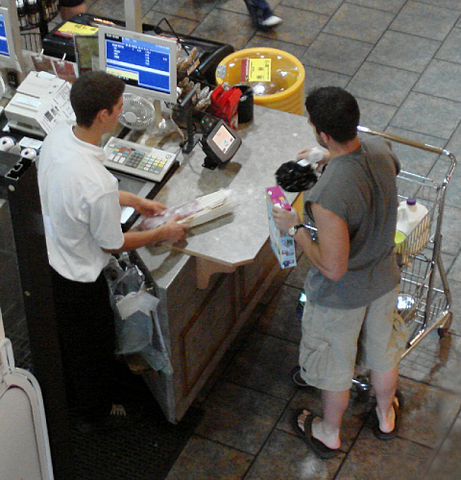The Atlantic and Post Alley’s Doug McLennan wonder if COVID-19 will spell “the end of movie theaters.” Indexer Michael Luis wonders if the restaurant business will recover from the current devastation: “We don’t know if diners will flood back into restaurants as soon as they have permission.” I wonder if the epidemic will prove fatal for many brick-and-mortar retailers and further speed the rush to the Amazon borg. For now the grocers and big boxes are cleaning up as anxious hoarders stockpile cleaners, toilet paper, and spaghetti; Target’s and Walmart’s shares have been relatively resilient in the market meltdown. But once the hunkering down begins in earnest the reckoning may come even for them, especially if habits change and don’t change back.

Local officials seem to be getting anxious on that score too. On Monday, Gov. Inslee proclaimed, “I hereby prohibit the operation [through March 31] of all retail stores unless they designate an employee or officer who must establish and implement social distancing and sanitation measures established by the United States Centers for Disease Control and Prevention or the Washington State Department of Health guidelines.” That wording makes shutting down sound like the default option—a dire implication. On Wednesday King County worded the directive more gently: “All [non-restaurant, non-recreational] retail businesses—including grocery stores and pharmacies—should and may remain open provided they observe COVID-19 prevention measures.” (Emphasis added.)
Businesses are falling over themselves to tout their prevention measures, but it can take awhile for new rules to trickle down to the checkout counter. Two days after the governor’s proclamation, I stopped to pick up a few useful items at a big chain store in West Seattle. The UPC sticker on one item had gotten creased, so the young checkout clerk leaned in close to flatten it—holding his face about four inches above. Thus alerted, I looked along the long checkout counter and saw not a bottle of hand sanitizer or sign of a wipe anyway. Don’t they give you any sanitizer? I asked.
“I think there was some here yesterday,” he said. “It’s kind of hard to get hold of. I think they give it to the people working out on the floor.”
That seemed a curious choice. Those stocking merchandise certainly should have clean hands. But it’s the checkout clerks who pass hundreds of items wrapped in virus-friendly plastic back and forth with a parade of strangers each day.
This time, I let the kid sell me a paper bag and drop the purchases and receipt in it. I gingerly carried the bag out, set it aside in the car, swabbed my hands—and left my new prizes to cool, like hot embers or radioactive waste, for a few days.
The next day I called the store and asked to speak to its designated sanitation officer. I was promptly patched through to “Christine,” who was responsive and informed and seemed serious about her role. She said her crews wiped down high-touch surfaces like counters every half hour and provided sanitizer for all the checkout stations. Hmmm…..
Conscientious shoppers can help out by watching for and pointing out hygienic lapses in whatever public establishments we visit. The lungs you save might be your own, or someone else’s that are more fragile. If you don’t see something, say something.
Discover more from Post Alley
Subscribe to get the latest posts sent to your email.

As we so often do, we have good intentions and erratic follow-through with this. I was in Portland last week, where the waitress at a cafe assured me that the pen she gave me to sign for my order was wet because she’d “just sanitized it.” And at a bakery on Capitol Hill this morning, they had two cups in front of the register — take a clean pen out of the one on the right to sign the check, and put it in the “dirty pen” cup on the left when you were done.
I’ve heard people taking about leaving their newly purchased goods in detention to wait for the virus to die, but no one seems to be able to tell me what to do with things that need refrigeration…